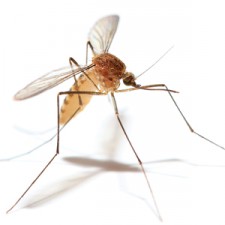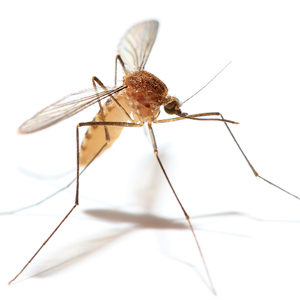 Mosquitoes – ick! If only Noah had left these guys off the manifest. I know, they’re part of the food chain, blah, blah, blah. But really, what good are they?
Mosquitoes – ick! If only Noah had left these guys off the manifest. I know, they’re part of the food chain, blah, blah, blah. But really, what good are they?
I’m sure you have heard various remedies for dealing with the itch that comes with a bug bite, as well as prevention tips to try to avoid getting bitten in the first place. There are lots of bug-related myths out there.But this year, one of the biggest is this: It wasn’t cold enough last winter to kill the bugs, so we will have an abundance of pests this summer. This is false, say the expert entomologists. While the warm winter and early spring did bring the bugs out sooner, the population of bugs at any given time is about the same. That just means seeing mosquitoes in March offered us a chance to try out some of these remedies much earlier.
1. The Garlic Myth
All old wives’ tales have a bit of garlic, right? As with most myths, there is some truth to this one. If you rub garlic directly on your skin, that portion of your skin will be repellent to mosquitoes for about 20 minutes—and everybody else for the rest of the day. If you eat it to repel the pests, you may get indigestion. As for the mosquitoes, they won’t notice.
2. The Vitamin B Myth
Vitamin B tablets do not make humans unattractive or less tasty to a mosquito, but the vitamin is good for energy, perhaps letting you scratch with more vigor after you get bitten.
3. The Listerine Myth
You’ll find lots of folks online who believe antiseptic mouthwash doubles as an effective mosquito repellent. But just as many experts are available to say that though some of the products’ ingredients have been shown to act as a repellent, mouthwash itself has yet to be tested by science.
4. The Alcohol Myth
Studies have shown that drinking alcohol can actually make a person more attractive To mosquitoes, possibly because it flushes the skin and makes you warmer. But you can always look at it this way: You will most likely care less when you get bitten and not remember to scratch, at least until morning.
5. The Dryer Sheet Myth
While this might keep static electricity at bay, it will have no effect on mosquitoes.
6. Scratching is Always Detrimental Myth
Doctors say that scratching a mosquito bite would get you a few seconds of relief and an ugly infection. While scratching vigorously is not a good idea, you can help stop the itch by using the trick I learned at Girl Scout camp of pressing your nail gently into the swollen area making an X to disperse the toxin. It works much better than scratching.
7. The Tenderized Bite Myth
While this might seem like a remedy only someone who’s tender in the head might try, some medical experts do recommend it. Make a paste of a teaspoon (about 5 milliliters) of water and an equal volume of powdered meat tenderizer. Apply several Times a day until your symptoms subside.Then keep your fingers crossed mosquitoes don’t find you more tasty when they come back for seconds.
Whether you’re dealing with prevention or you have already crossed over into the itch-scratch cycle, experts agree on steps you can take to minimize mosquitoes around your home in the future. Drain any standing water around the house, including trapped in the folds of tarps covering woodpiles or backyard equipment. Because it takes mosquitoes from five to 14 days to grow from egg to adult, it’s important to look around every five days or so.
When it comes to personal space, dressing properly is important. Mosquitoes can and will bite through tight-fitting garments, so loose-fitting clothing is preferable. Wear long sleeves and pants if you’re in a particularly mosquito-infested area. Defend yourself with commercially sold DEET-free repellents. For those who want a natural repellent, oil of lemon eucalyptus has been recommended by the Centers for Disease Control.
Once you’ve been bitten, you can try the tenderizer trick, but remember that medicine also works wonders on the itch. Try applying a hydrocortisone cream or calamine lotion. For stronger reactions, taking an antihistamine containing diphenhydramine, chlorpheniramine maleate, loratadine or cetirizine may ease symptoms.




